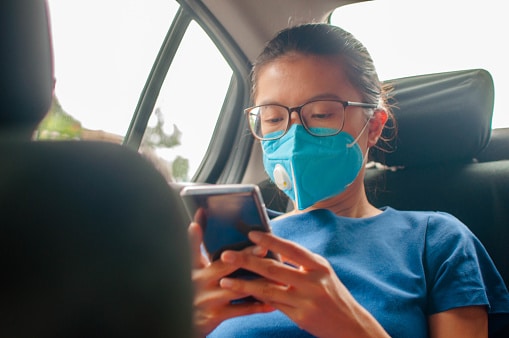Houseparty, with 10 million downloads on Android and millions more on iPhones (Apple won’t confirm exact numbers), has become one of, if not the hit app of the coronavirus shutdown. Vogue even called it “the quarantine app you need to download immediately.”
It lets users start and join a handful of games – Heads Up!, Quick Draw! and Trivia – all with live video and chat. And, thanks to COVID-19 restrictions on people leaving the house, the Epic Games-owned property is scoring many more fans.
But Is Houseparty Safe To Use?
There is some good news on the safety front: there are no obvious flaws or dangers with the app. Forbes had cybersecurity and privacy researcher Lukas Stefanko take a look at the Android version of the app to see if there were any other potential issues. He said there was nothing of concern.
“I analyzed the app’s permissions usage and since the app provides video chats with your friends it is logical that requested permissions are necessary. I haven’t found any shady misusing of them by the app,” said Stefanko, a researcher with cybersecurity firm ESET. “The app doesn’t provide a lot of in-app options and settings, which creates less scenarios for exploiting security issues.”
From a privacy perspective, there’s one obvious issue that some might want to note before diving in: games are open to any of your friends and any of your friends’ friends, unless you lock the “room” where you’re playing. That’s easily fixable, however, with a simple hit of the padlock button at the bottom of the screen. If you don’t lock rooms down, there’s a chance people you don’t know will invade your fun.
What Does The Privacy Policy Say?
There’s also nothing obviously outrageous in the Houseparty privacy policy. Perhaps the most concerning, though, is that it can collect “anonymized and aggregated information, such as de-identified demographic information” and “de-identified location information.” As seen in recent news about antivirus company Avast, even when location data is “de-identified,” it’s still possible to find out who the person is by linking it with other information. (That kind of aggregated location tracking is something global governments have considered using to follow the spread of coronavirus. Perhaps they could ask Houseparty to help out as they’ve reportedly done with Facebook and Google.)
Whilst the app collects contacts so you can find friends to play with, the company promises it “will never share your phone number or the phone numbers of third parties in your contacts with anyone else.”
There is the standard warning that user data can be used for more targeted advertising. If you’re concerned enough about that, there are further steps you can take to protect your private information and still use Houseparty.
How To Use Houseparty Privately
There are a few things you can do to boost the privacy of your Houseparty games. First, head to settings, which can be found by first clicking the smiley face at the top left of the screen, then hitting the cogwheel button when the menu appears.
Then you can turn on private mode, which locks every room you’re in. You can also go to the permissions section and turn location on or off. It’s turned off by default, so leave it that way if you want to ensure your whereabouts are private. And if you want to go even further protecting your identity, use a fake name and birthday in the profile section.
It’s also possible to opt-out of receiving any emails, texts or notifications about Houseparty offers. Go to section 5 of the Houseparty privacy policy (it’s brief, don’t worry) to find out the best way to opt-out of each. To withdraw consent for Houseparty to use any of your personal data, users can also email [email protected].
One other neat trick learned whilst using the iPhone version of the app: hold down on the Houseparty icon and click on ‘Sneak into the House.’ That means that when you go in, none of your contacts will be notified.
– Thomas Brewster, Forbes Staff, Cybersecurity
